第217章 XXIX.(23)
191. Inch-Cailliach. Scott says: "Inch-Cailliach, the Isle of Nuns, or of Old Women, is a most beautiful island at the lower extremity of Loch Lomond. The church belonging to the former nunnery was long used as the place of worship for the parish of Buchanan, but scarce any vestiges of it now remain. The burial-ground continues to be used, and contains the family places of sepulture of several neighboring clans. The monuments of the lairds of Macgregor, and of other families claiming a descent from the old Scottish King Alpine, are most remarkable. The Highlanders are as zealous of their rights of sepulture as may be expected from a people whose whole laws and government, if clanship can be called so, turned upon the single principle of family descent. 'May his ashes be scattered on the water,' was one of the deepest and most solemn imprecations which they used against an enemy." [See a detailed description of the funeral ceremonies of a Highland chieftain in the Fair Maid of Perth.]
203. Dwelling low. That is, burial-place.
207. Each clansman's execration, etc. The MS. reads:
"Our warriors, on his worthless bust, Shall speak disgrace and woe;"and below:
"Their clattering targets hardly strook;
And first they muttered low."
212. Stook. One of the old forms of struck. In the early eds. of Shakespeare, we find struck, stroke, and strook (or strooke)for the past tense, and all these, together with stricken, strucken, stroken, and strooken, for the participle. Cf. Milton, Hymn of Nativity, 95:
"When such music sweet Their hearts and ears did greet As never was by mortal finger strook;"where, as here, it used for the sake of the rhyme.
214. Then, like the billow, etc. The repetition of the same rhyme here gives well the cumulative effect of the rising billow.
217. Burst, with load roar. See on i. 73 above; and cf. 227below.
228. Holiest name. The MS. has "holy name."245. Mingled with childhood's babbling trill, etc. "The whole of this stanza is very impressive; the mingling of the children's curses is the climax of horror. Note the meaning of the triple curse. The cross is of ancestral yew--the defaulter is cut off from communion with his clan; it is sealed in the fire--the fire shall destroy his dwelling; it is dipped in blood--his heart's blood is to be shed" (Taylor).
253. Coir-Uriskin. See on 622 below.
255. Beala-nam-bo. "The pass of the cattle," on the other side of Benvenue from the Goblin's Cave; "a magnificent glade, overhung with birch-trees, by which the cattle, taken in forays, were conveyed within the protection of the Trosachs" (Black).
279. This sign. That is, the cross. To all, which we should not expect with bought, was apparently suggested by the antithetical to him in the preceding line; but if all the editions did not read bought, we might suspect that Scott wrote brought.
281. The murmur, etc. The MS. has "The slowly muttered deep Amen."286. The muster-place, etc. The MS. reads "Murlagan is the spot decreed."Lanrick Mead is a meadow at the northwestern end of Loch Vennachar.
300. The dun deer's hide, etc. Scott says: "The present brogue of the Highlanders is made of half-dried leather, with holes to admit and let out the water; for walking the moors dry-shod is a matter altogether out of the question. The ancient buskin was still ruder, being made of undressed deer's hide, with the hair outwards,-- a circumstance which procured the Highlanders the well-known epithet of Red-shanks. The process is very accurately described by one Elder (himself a Highlander), in the project for a union between England and Scotland, addressed to Henry VIII.:
'We go a-hunting, and after that we have slain red-deer, we flay off the skin by and by, and setting of our barefoot on the inside thereof, for want of cunning shoemakers, by your grace's pardon, we play the cobblers, compassing and measuring so much thereof as shall reach up to our ankles, pricking the upper part thereof with holes, that the water may repass where it enters, and stretching it up with a strong thong of the same above our said ankles. So, and please your noble grace, we make our shoes.
Therefore, we using such manner of shoes, the rough hairy side outwards, in your grace's dominions of England, we be called Rough-footed Scots' (Pinkerton's History, vol. ii. p. 397)."Cf. Marmion, v. 5:
"The hunted red-deer's undressed hide Their hairy buskins well supplied."304. Steepy. For the word (see also iv. 374 below) and the line, cf. Shakespeare, T. of A. i. 1. 75:
"Bowing his head against the steepy mount To climb his happiness."309. Questing. Seeking its game. Bacon (Adv. of Learning, v.
5) speaks of "the questing of memory."
310. Scaur. Cliff, precipice; the same word as scar. Cf.
Tennyson's Bugle Song: "O sweet and far, from cliff and scar;"and in the Idyls of the King: "shingly scaur."314. Herald of battle, etc. The MS. reads:
"Dread messenger of fate and fear, Herald of danger, fate and fear, Stretch onward in thy fleet career!
Thou track'st not now the stricken doe, Nor maiden coy through greenwood bough."322. Fast as the fatal symbol flies, etc. "The description of the starting of the Fiery Cross bears more marks of labor than most of Mr. Scott's poetry, and borders, perhaps, on straining and exaggeration; yet it shows great power" (Jeffrey).
332. Cheer. In its original sense of countenance, or look. Cf.
Shakespeare, M. N. D. iii. 2. 96: "pale of cheer;" Spenser, F. Q. i. 1. 2: "But of his cheere did seeme too solemne sad;" Dryden, Hind and Panther, iii. 437: "Till frowning skies began to change their cheer," etc.
333. His scythe. The reading of the 1st and other early eds.;"the scythe" in more recent ones.